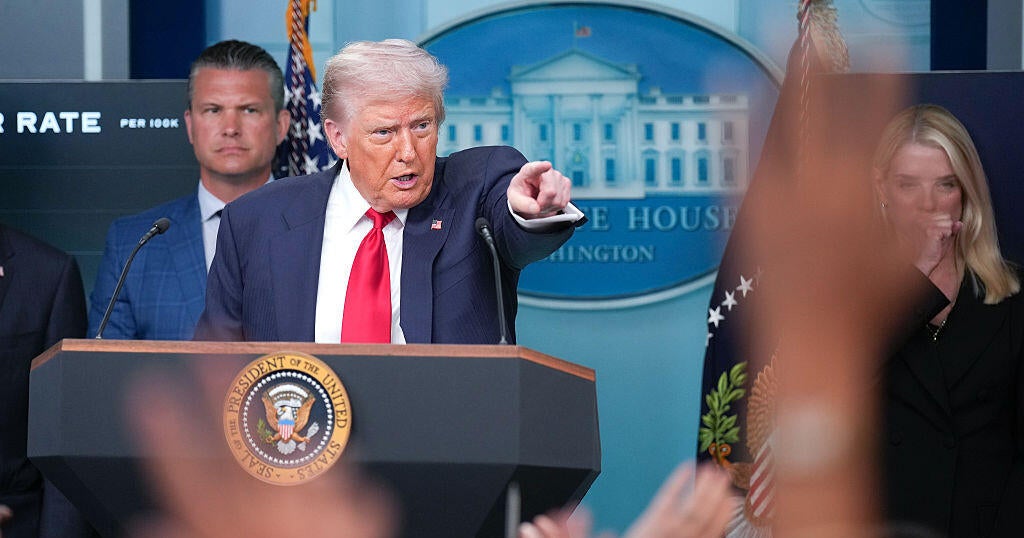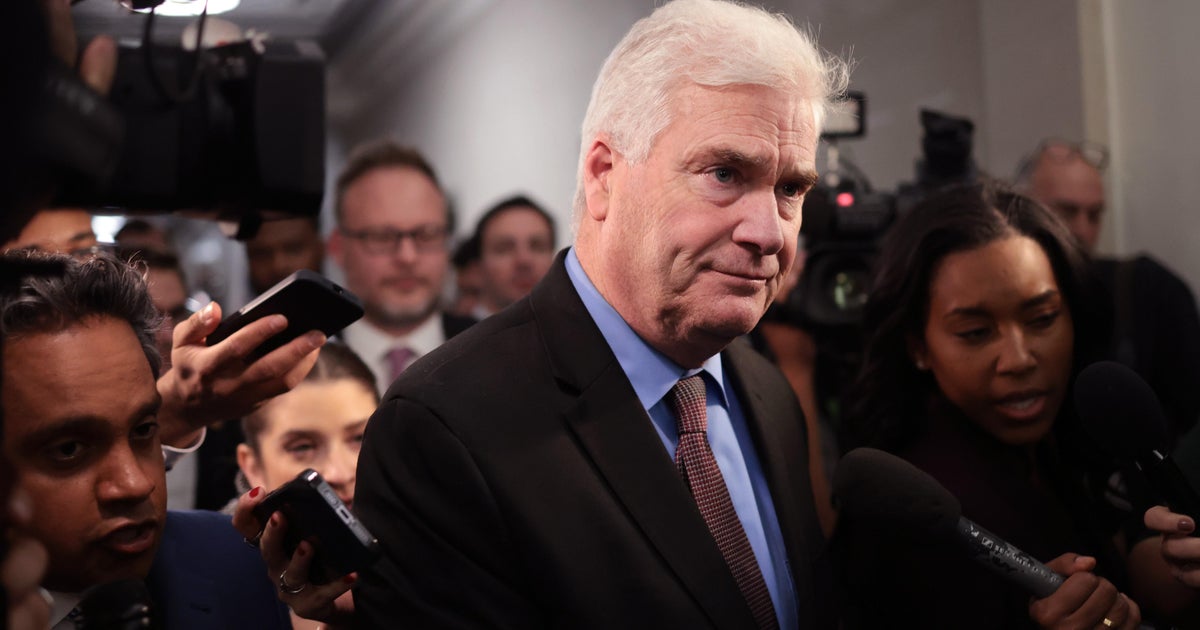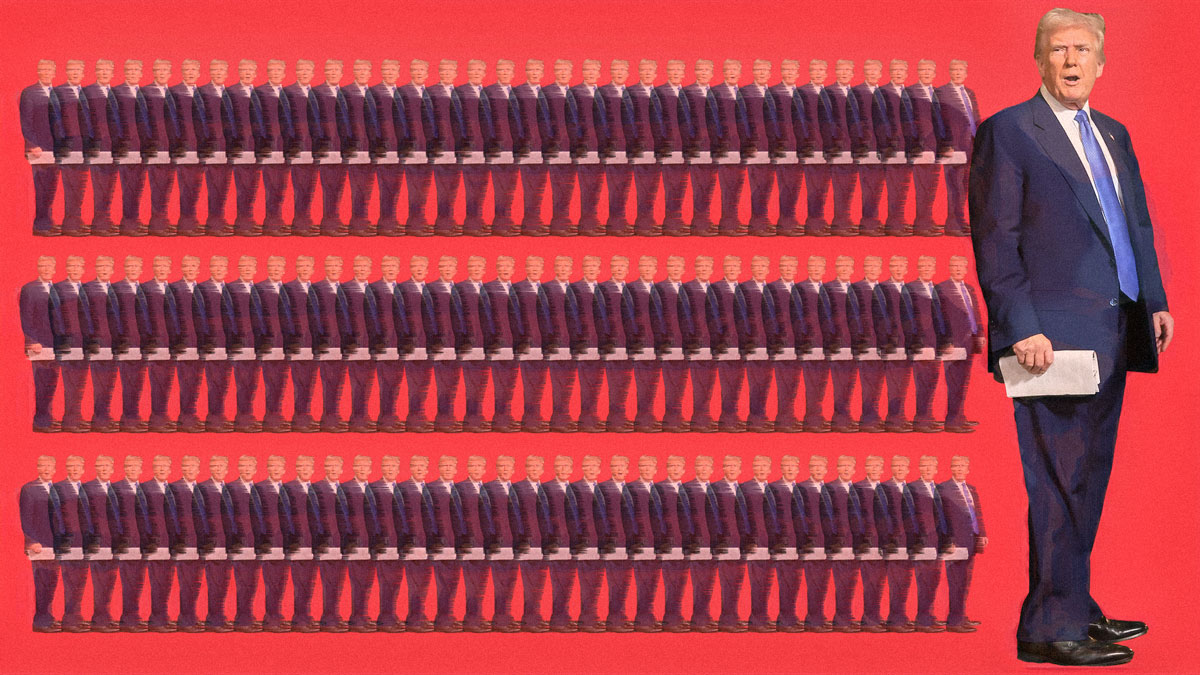Trump wants to bring back mental institutions to address mass shootings
President Trump says he wants to reopen mental institutions as a way to address mass shootings, an idea he pushed twice Thursday and has floated before.
The president's insistence that mental illness is the cause of mass shootings has disconcerted mental health professionals who insist that most people with mental illness are nonviolent. These experts also say people afflicted with mental illness are more likely to be the victims of violent crime than the perpetrator, and fear the president's language only further stigmatizes those struggling with mental health issues.
"I do want people to remember the words 'mental illness,'" the president told reporters on his way to a rally in New Hampshire Thursday afternoon, responding to a question about gun control.
"These people are mentally ill and nobody talks about that. But these are mentally ill people, and people have to start thinking about it. I think we have to start building institutions again because, you know, if you look at the '60s and '70s, so many of these institutions were closed...But a lot of our conversation has to do with the fact that we have to open up institutions. We can't let these people be on the streets."
The president reiterated that thought at his rally hours later, insisting the U.S. "will be taking mentally deranged and dangerous people off of the streets." He didn't say exactly how that might happen.
"We are working very hard to make sure we keep guns out of the hands of insane people and those who are mentally sick and shouldn't have guns. But people have to remember however that there is a mental illness problem that has to be dealt with. It's not the gun that pulls the trigger, it's the person holding the gun," the president said to thunderous applause.
"Years ago many cities and states I remember so well closed mental institutions for budgetary reasons...We're going to have to give major consideration to building new facilities to those in need, we have to do it. And at the same time we will be taking mentally deranged and dangerous people off of the streets so we won't have to worry so much about that, a big problem. We don't have those institutions anymore and people can't get proper care."
Mr. Trump also floated opening new psychological institutions last year after the massacre at Marjory Stoneman Douglas High School in Parkland, Florida. At the time, the idea went nowhere.
"Part of the problem is we used to have mental institutions...where you take a sicko like this guy," the president said last year. "We're going to be talking seriously about opening mental health institutions again."
But mental health experts rebuked the idea.
American Psychological Association Deputy CEO Jaime Diaz-Granados told CBS News that kind of language and thinking only further stigmatizes those with mental health issues.
"It's really just another example of a knee-jerk reaction to a simple explanation of a complex problem when we're talking about active shooters mass shooters as mentally ill, because there is no evidence whatsoever to support that," Diaz-Granados said, noting that other countries struggle with similar rates of mental illness but don't have mass shootings like the U.S. does.
"We absolutely agree and have stated before that this only furthers the stigmatization of mental illness and is going to cause people that need help to not go after that help, access the help that there is," he added.
While mental health experts do agree more funding is needed for hospital beds, mass institutionalization as was practiced half a century ago is an outdated and ineffective method, Diaz-Granados noted.
Although psychiatric hospitals still exist in the U.S., their numbers have declined precipitously in recent decades. This is do to a combination of factors, including laws that made it harder for the government to involuntarily commit people in many jurisdictions, as well as budget cuts at the state and local level.
"The movement to de-institutionalize the way we treated mental illness in the past … it was a very complex movement and it really had to do with the fact there was a recognition that many of these folks that were institutionalized were indeed capable of being productive members of their community, of society," Diaz-Granados said.
National Alliance on Mental Illness Acting CEO Angela Kimball said the president "should be talking about better care and earlier access to intensive treatment, not revisiting the shameful institutions of our past."
"Words matter, Mr. President. 'These people' are our friends, neighbors, children, spouses. They're not 'monsters,' 'the mentally ill' or 'crazy people' — they're us. Talking about reinstitutionalization only further marginalizes and isolates the one in five people with mental illness. Instead, we need to be talking about the power of early treatment and effective intervention to change lives," Kimball said in a statement.
Former FBI profiler Mary Ellen O'Toole also contradicted Mr. Trump's assertion that mental health is a major factor in mass shootings. "Mental health is not the problem," she recently told CBS News chief Washington correspondent Major Garrett on CBS News' "The Takeout" podcast.
"My experience has been, that these are individuals that, if there is a mental health issue, they still are able to function very strategically, and in a very cold-blooded and callous manner. So, mental health is not the problem," O'Toole said. Fewer than 25% of mass shooters are clinically diagnosed with mental health issues, O'Toole added.
The National Alliance on Mental Illness estimates that roughly one in five adults in the U.S., or more than 46 million people, "experiences mental illness in a given year."
Diaz-Granados said the U.S. needs to treat mass shootings as a public health crisis.
"Our stance is that this is a public health issue, and we should be taking a public approach to solving the issue," he said.
Grace Segers contributed to this report.





